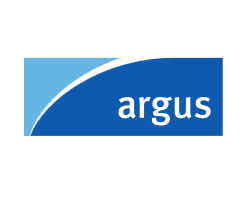Liberty Coal Agrees to Optimum Forfeiture Deal

By Elaine Mills
February 2, 2024 - Liberty Coal has agreed a forfeiture settlement over Optimum coal mine whereby it will pay R462mn ($24.7mn) – or 44pc of the mine's current value of R1.05bn - to South Africa's National Prosecuting Authority (NPA).
Under the settlement, parties have accepted that R917mn - or nearly 44pc of Optimum's original purchase price of R2.1bn - was the undisputed proceeds of crime.
The agreement is supported by Liberty Coal's parent firm, Templar Capital, the mine's current owner Tegeta Exploration and Resources, its curator and business administrators, as well as the National Union of Mineworkers.
The NPA launched proceedings in 2021 to block a business rescue plan whereby Liberty was to acquire Optimum in a debt-to-equity deal proposed by Templar. The authority obtained a preservation order on 23 March 2022 and in July of the same year launched a forfeiture application.
Liberty, Optimum, its administrators and NUM launched an appeal against the NPA's forfeiture application, but the Supreme Court of Appeal dismissed their appeal on 30 October 2023.
In an affidavit seen by Argus, Liberty said it decided to conclude the settlement with the NPA as it was the only viable way to preserve Optimum's business and prevent the mine from falling further into disrepair. But Liberty as well Templar insisted they were not previously aware of any unlawfulness and that the settlement should "not be construed as an admission of guilt or liability."
The NPA's forfeiture proceedings could take up to four years to finalise, which would require more vast litigation expenses, while Optimum's value will continue to decline and more mining jobs would be lost, Liberty said.
The NPA, as well as Optimum's curator and business administrators, support the settlement for similar reasons. If finalisation of the matter is delayed for the next few years, it is likely that Optimum's value will be destroyed in its entirety, they said.
They do not see any realistic prospect of securing another buyer, especially as the mine deteriorates, the coal price stagnates and the worldwide trend away from financing coal projects continues.
"Liquidation would be the likely ultimate outcome, and with it, the loss of jobs, the mining right, the RBCT [Richards Bay Coal Terminal] export allocation, and the destruction of the largest coal mine in South Africa," they warned.
Apart from the agreed forfeiture amounts it has to pay, Liberty is liable for creditors' claims of R1bn and it has also agreed to pay the NPA around R20mn in costs. It is estimated that R4.15bn will be needed to revive Optimum, more than R2.05bn of which Liberty will have to invest in the first two years to bring the mine back to production.
Previously, Liberty paid around R300mn to RBCT on Optimum's behalf to clear its outstanding debt. The firm has since paid around R14mn/month to RBCT to preserve OCT's 6.5mn t/yr export allocation, despite not being able to benefit from it since RBCT suspended the mine's entitlement on 31 January 2023.
Optimum has not been able to export coal since then and has not been able to generate any income from its mining activities. This brought a progressive curtailment of its operations and the retrenchment of some 500 employees. Currently, around 1,500 more jobs are at risk.
Procuring the upliftment of RBCT's suspension may take longer than initially envisaged, as it will not happen automatically once the settlement agreement becomes an order of court, Liberty said. RBCT will only lift the suspension once the business rescue plan has been fully implemented and Liberty has become the registered owner of Optimum, which could take several weeks to achieve.
Optimum entered business rescue in February 2018 when its parent firm Tegeta went into administration after its owners, the India-born Gupta family, fled the country to avoid prosecution over the alleged fraudulent procurement of government contracts and their suspected improper relationship with ousted president Jacob Zuma.
The mine, in Mpumalanga province, has remained under care and maintenance ever since as the administrators tasked with meeting creditors' demands struggled to find buyers.

